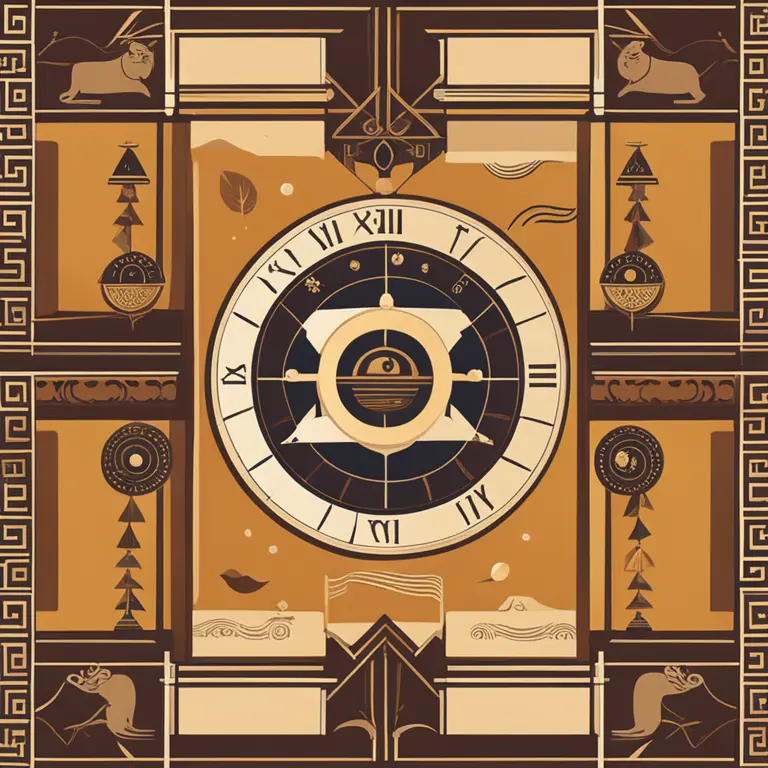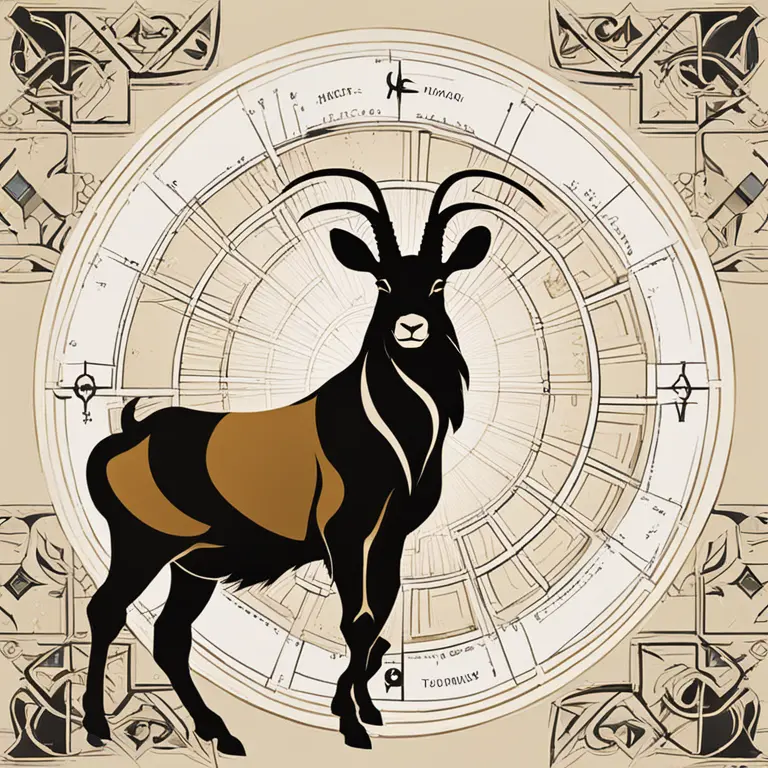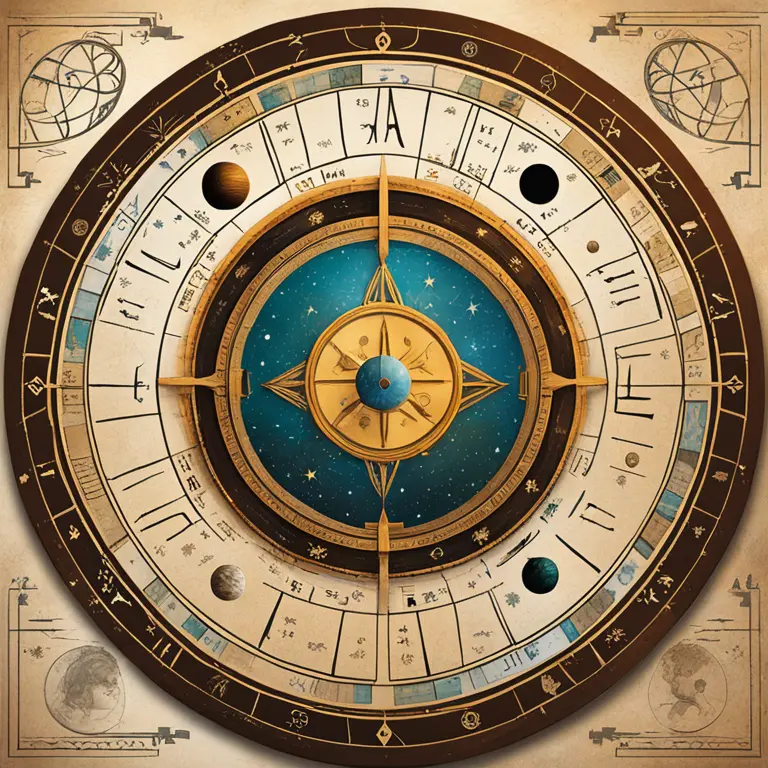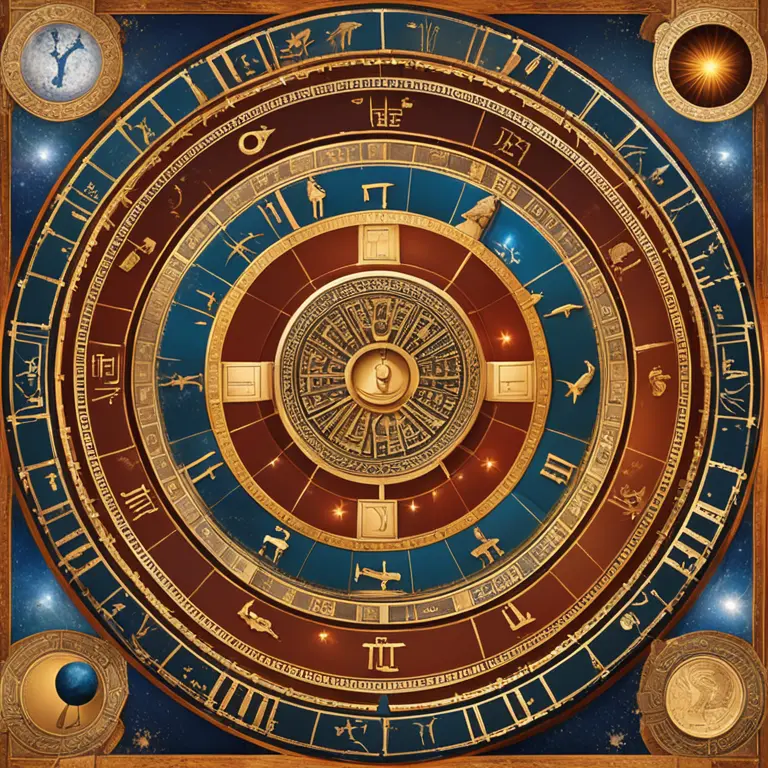
The Roots of Zodiac Signs: An Astral Heritage
Delve into the ancient origins of zodiac signs and discover how they have shaped astrological practices throughout history.
article by Priya Deshmukh
The Dawn of Zodiac Significance
The concept of the zodiac originates from a celestial coordinate system that was developed in Babylonia during the mid-first millennium BCE. This system was defined by the movement of the Sun across the sky over the course of the year and the 12 distinct zones of constellations it encountered on its path. Ancient astrologers noticed that the Sun's journey was marked by specific star constellations which, over time, were grouped into the twelve signs we are familiar with today. The importance of these constellations emerged from their consistent patterns in the sky and their perceived influence on Earth's inhabitants.

Ancient Astrology and the Zodiac
Astrology in ancient times was not merely a form of fortune-telling but was often intertwined with astronomy and regarded as a scientific endeavor. The zodiac signs, associated with seasons, celestial events, and changes in nature, became critical for agricultural societies. The narratives and symbols we associate with each zodiac sign were deeply rooted in the mythology and cultures of ancient civilizations, serving as a means to interpret the gods’ messages delivered through the stars.

The Twelve Zodiac Archetypes
The familiar zodiac signs of Aries, Taurus, Gemini, and so forth each represent an archetype within the astrological lore. The traits associated with these signs sprang from the characteristics of the constellations, as well as the time of year they were prominent. For instance, Capricorn, associated with the start of winter in the Northern Hemisphere, incarnates traits of resilience and discipline. The zodiac became a form of celestial storytelling, linking human attributes to the vast movements of the cosmos.

The Zodiac's Cultural Journey
The Hellenistic period saw the merging of Babylonian and Greek practices, forming the basis for the Western zodiac tradition that most are familiar with today. This included the adoption of the zodiac into various cultural philosophies, art, and even medicine. The Romans later integrated zodiacal symbols into their own cosmology, which preserved these beliefs through the Middle Ages and into the Renaissance, ensuring the survival of these astrological concepts up to the present day.

Modern Astrology and the Zodiac
Despite the ancient roots of zodiac signs, their interpretations remain remarkably resilient in modern astrology. In 2024 and beyond, the influence of zodiac signs continues to play a significant role in astrological forecasts. Astrologers examine the positions of planets and transits through specific zodiac signs to generate insights into personal growth, relational dynamics, and future trends. The enduring appeal of zodiac signs lies in their ability to provide a timeless narrative structure amidst an ever-changing cosmic dance.
Contemporary Significance and Personal Discovery
In the age of personal enlightenment and self-discovery, zodiac signs offer an accessible path to explore one's identity and potential pathways in life. With each passing year, astrological interpretations evolve to reflect contemporary society and individual experiences. As we look to the stars in 2024, the archetypal wisdom of the zodiac grants a frame for personal exploration and cosmic connectivity, encapsulating the human quest for meaning within the vast universe.
Published: 2/2/2024
Modified: 2/2/2024
More predictions
Come back here soon to learn more about yourself and your future


Your Home Horoscope: Celestial Timings for Property Purchase
Discover astrological insights to help you determine the best time to buy a house based on your zodiac sign. Tap into the stars for your home-buying journey.


The Role of Astrological Houses in Personal Insight
Discover the significance of houses in astrology and how they contribute to a deeper understanding of your personal birth chart and life journey.


The Influence of Astrological Houses on Your Birth Chart
Discover how the astrological houses in a birth chart shape your personality, life path, and destiny, playing a key role in your astrological profile.